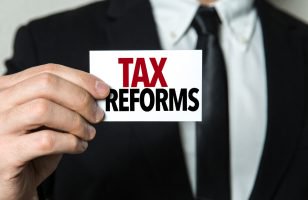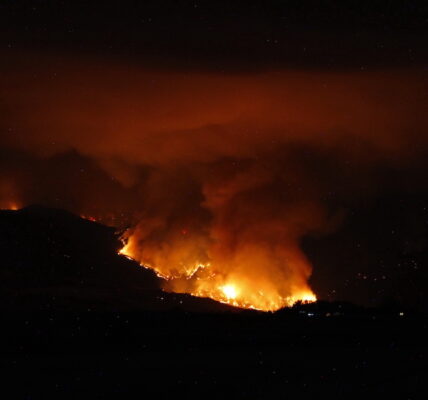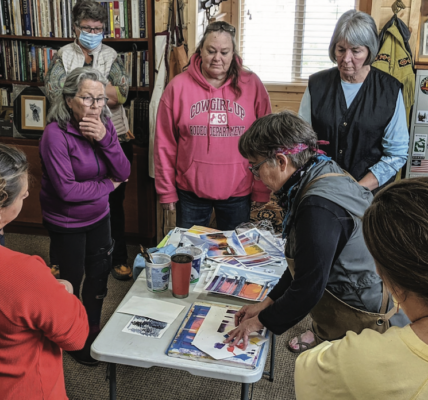By Joel Funk
Wyoming Tribune Eagle
Via Wyoming News Exchange
CHEYENNE – Most of Wyoming’s Republican candidates for governor won’t be taking a no-tax pledge leading up to the August primary.
Wyoming Prosperity, a far-right economic policy group headed by Sven Larson, has characterized the state’s GOP gubernatorial candidates as being in two camps: those committed to opposing tax increases and those he said are less clear. Larson has been strongly critical of Republican Gov. Matt Mead and others in the GOP for policies Larson believes don’t comport with his brand of fiscal conservatism.
With a busy Republican primary to be the next governor, Larson put out a no-tax pledge in late March and called on the candidates to take it.
“I’m trying to get all the candidates to come out of the woodwork with what their fiscal conservatism really means,” Larson said.
Six Republicans have so far announced they will seek the governor’s office in 2018:
– Bill Dahlin of Sheridan
– Sam Galeotos of Cheyenne
– State Treasurer Mark Gordon of Buffalo
– Harriet Hageman of Cheyenne
– Taylor Haynes of Laramie
– Rex Rammell of Rock Springs
Many consider Gordon and Galeotos more of the mainstream Republican ilk, while most of the remaining candidates seem further to the right. Only Gordon has experience in elected office.
Earlier this month, Larson announced one Republican candidate, Haynes, had taken his no-tax pledge.
“(Haynes) called the others out and said, ‘Where are you on this issue?'” Larson said. “‘Are you or are you not going to raise taxes?’ That gives him a distinct advantage.”
But not everyone is convinced signing the pledge is a make-or-break move for Republicans in the gubernatorial primary.
“It’s a good question, but I don’t know how it affects people’s opinions at the polls,” said Buck McVeigh, Wyoming Taxpayers Association executive director.
McVeigh said the Taxpayers Association is not an anti-tax organization, but has strict criteria for evaluating tax proposals. Leading up to the Wyoming Legislature’s 2018 budget session, the Joint Revenue Committee considered a buffet of tax proposals meant to address the state’s budgetary shortfalls. Wyoming relies on mining for around 70 percent of its revenue. When commodity prices tanked in late 2014, it led to an economic crisis the state has yet to climb out of.
McVeigh spoke against the tax proposals and said what the committee put forward was unacceptable. But even in a state as conservative as Wyoming, McVeigh said it’s important to have the discussion.
“I think rational people think we have to have the discussion on taxes, particularly when our cash cow – the mineral industry – is in the doldrums it’s been in the last four years,” he said.
“We should be entertaining the question of how we’re going to pay the bills going forward.”
If he were a candidate, McVeigh said he would not accept the pledge. And it appears that’s how the majority of Wyoming’s gubernatorial candidates feel as well.
GORDON
While Gordon has spoken against tax increases and is for examining needs-versus-wants spending, campaign spokeswoman Kristin Walker said the candidate won’t be taking a no-tax pledge.
“During this economic downturn, we have to rein in spending and ensure we are living within our means,” Walker said in an email.
“That’s the only way to make certain our tax future is low and consistent going forward.”
HAGEMAN
Much as she’s done in her professional career, Hageman has centered her platform on resisting the federal government. While Mead has also had significant instances of pushing against federal reach into Wyoming, Hageman’s positions certainly seem to the right of the governor.
Hageman referred the Wyoming Tribune Eagle to her Facebook page when asked about the no-tax pledge. In the issues section, Hageman writes, “States that do not overspend, who keep taxes low and provide for a competitive business climate, attract more businesses than those that follow a tax-and-spend model.”
GALEOTOS
When asked in March about the future of Wyoming’s government, Galeotos said he was worried about there not being a definitive plan for addressing its budget shortfalls.
Taxes, however, should not be considered a part of the solution at this time, he said in a statement Thursday.
“While we may be facing serious budget challenges, this is simply the wrong time to be considering raising taxes,” he said.
“To the extent we ‘grow revenue,’ it must be done by growing the economy. I have spent my life leading people and organizations in the pursuit of solving large complex problems, and I know the best solutions are almost never simple.”
RAMMELL
Currently in his second statewide race in two years, Rammell has never been shy about being a conservative firebrand. Rammell said he hadn’t signed any no-tax pledges in 2018, but he had in the past.
He said he would sign the Wyoming Prosperity pledge. But Rammell said it didn’t matter whether he signed it or not, as he would “never raises taxes on anything.”
“They’re still too high,” Rammell said.
Dahlin and Haynes did not return requests for comment.
Wyoming could find itself in a position of either making devastating cuts to public services or raising taxes in coming years – or both. While the state’s bacon has been saved from economic busts in the past by mineral booms, many economists and lawmakers simply don’t see a surge in that sector on the horizon.
The last two budget sessions saw shortfalls covered by the state’s savings – commonly called the rainy-day fund – but that money can last only so long.
During his State of the State address to the Wyoming Legislature in February, Mead called on lawmakers to strongly consider tax measures put forward by the Revenue Committee, including a tobacco tax hike. None of the measures, however, was introduced by the House of Representatives.
As a conservative, Mead has long said he doesn’t want to see arbitrary tax hikes. However, the governor also said the discussion needs to take place before Wyoming finds itself in desperate circumstances.
“This notion that you can’t even have that discussion of where you should go in the future until you’re completely broke is a very bad way to go,” Mead said in March.
“Let’s say, for example, coal continues to feel the crunch; oil and gas go down and continue to struggle. We’re just not going to have enough revenue from minerals. Then you get to a point where you don’t have a rainy-day fund or where 1 percent statutory diversion is no longer very helpful. Then we say, ‘We’re out of money – we’re going to raise taxes.’ That’s going to lead to bad tax policy.”
Going into the 2018 budget session, the Laramie County Republican Party and the state GOP passed resolutions calling on lawmakers to resist any new taxes or fee increases. State Republican Party Chairman Frank Eathorne said it’s not clear taking a no-tax pledge would move primary voters. But given the state’s budgetary woes, he said fiscal issues could play a role.
“Overall, there seems to be less focus on taxation and more discussion attempting to understand recent spending,” Eathorne said in an email. “Either way, one could expect positions on finance could have impact on all the races.”
- 6Shares





